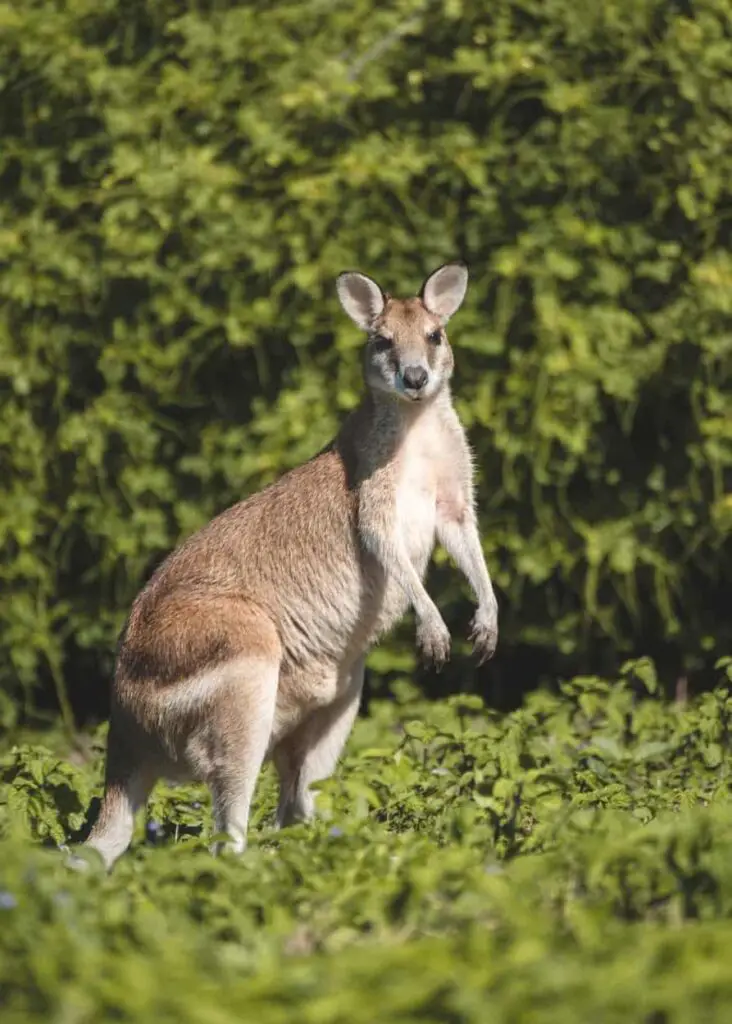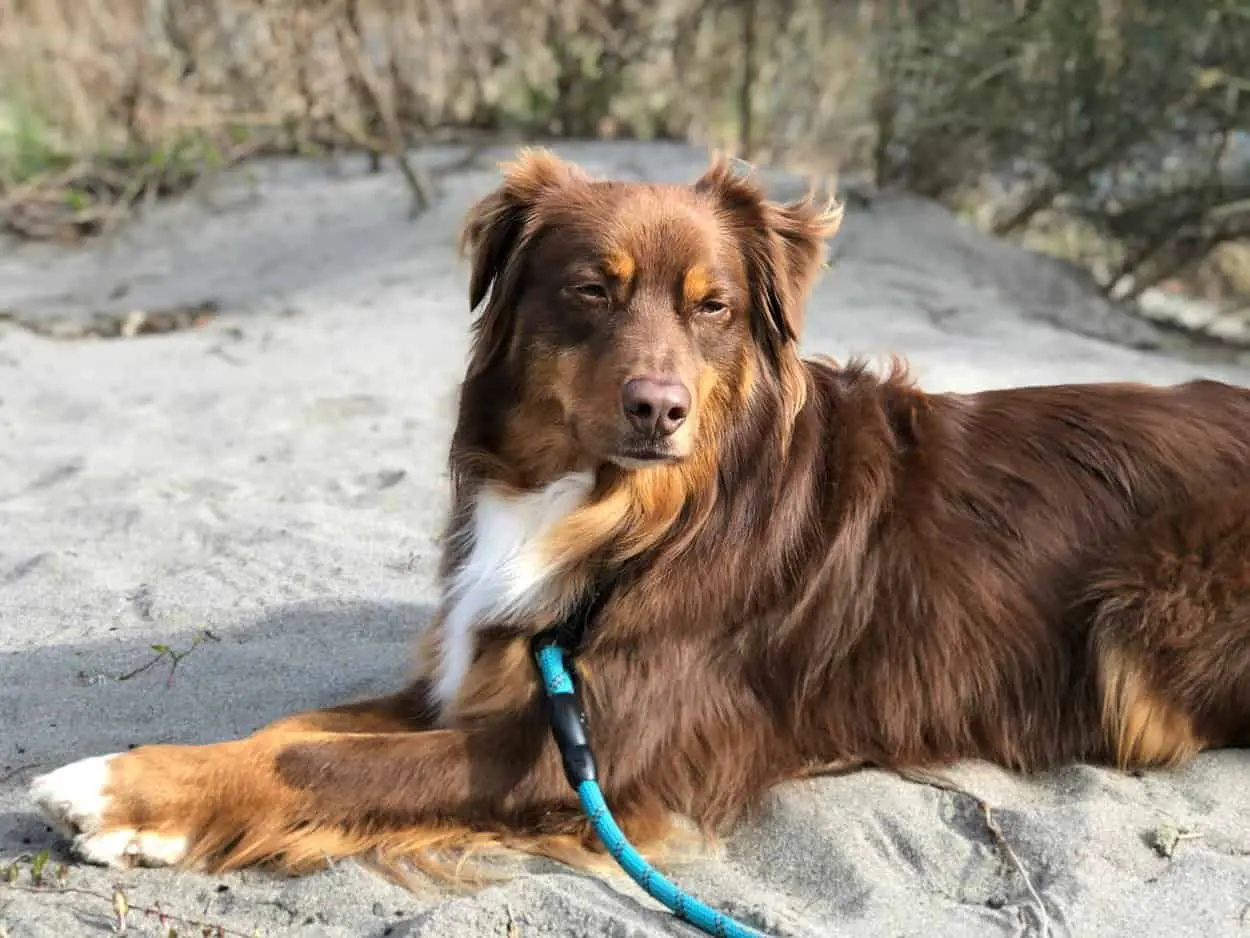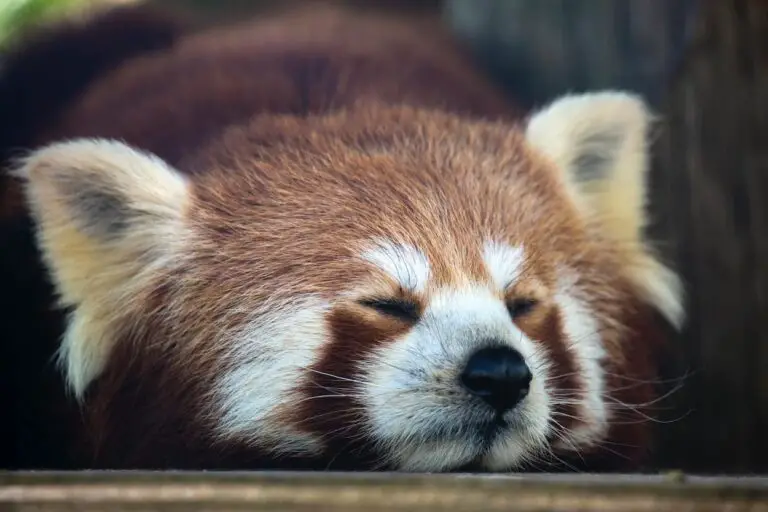What Pets Are Legal in Australia?
Anyone moving to Australia and expecting to get a pet kangaroo or koala should think again. Australia isn’t really like the Crocodile Dundee films, and it’s definitely not like that episode of The Simpsons where they went down under. Some native species can be kept as pets, though.
Australia has the highest rate of pet ownership in the world, and the list of allowed pets is what you’d expect—dogs, cats, many forms of livestock (depending on local legislation), many reptiles, birds, some pocket pets (hamsters, guinea pigs, etc.), although some authorities have listed rabbits as invasive creatures. The actual rules vary a lot from one state to another.
In Australia, animals are loved and cherished, with about 61% of all households having a pet. Besides, adopting or buying a dog or cat isn’t difficult in Australia (although it’s not cheap—even when you adopt from a shelter). But what about if you want something exotic, or you’re unsure if your possible pet is even legal in Australia?
Which pets can you have in Australia?
As we mentioned, dogs and cats are generally fine. There are certain breeds that are banned because they’re thought to be naturally aggressive and, therefore, dangerous, but we’ll get into those details a little later.
Some native animals can be kept as pets with permission from the state or territory government where you live. You usually need a licence, with some exceptions. Some native birds, like budgerigars (budgies) or cockatiels can be bought at a pet shop, and so no licence is needed. In fact, a lot of native birds can be kept as pets without a licence—even larger species like a sulphur-crested cockatoo.
What about that licence that allows you to keep native species as pets? The name of this licence varies depending on where it’s issued. For example, in New South Wales (NSW), it’s called a biodiversity conservation licence. You can enquire with the state or territory Department of Environment (or equivalent department) in your area.
A licence like this doesn’t let you keep any native creature as a pet. No, you usually can’t have a pet kangaroo, koala, wombat, or emu. In NSW, the only native mammals you can keep as pets are the plains rat or the spinifex hopping-mouse. Sorry to anyone who desperately wanted a kangaroo, but the list of allowed native species is really short.
Allowed pets in Australia
Similar to other countries, dogs and cats are some of the most common pets that are also allowed. They must be registered with your local council. Cats are legally required to be microchipped everywhere except Tasmania, and some states (Tasmania, the Australian Capital Territory, South Australia, and Western Australia) have mandatory desexing for cats.
While we’re talking about desexing, let’s quickly look at the (confusing) legislation that decides if the law says you have to. In alphabetical order—the Australian Capital Territory government says that dogs older than six months must be desexed. Cats older than three months must be desexed.
In New South Wales, the state government doesn’t require any desexing, but your local city council might so check with them. It’s exactly the same in the Northern Territory and Queensland. In South Australia, all dogs and cats over six months of age must be desexed.
We mentioned mandatory cat desexing in Tasmania, but dogs don’t have to be. The state of Victoria doesn’t have any desexing rules, but their local city councils often do. In Western Australia, cats have to be desexed by the age of six months, and laws requiring dogs to be desexed before their second birthday are (very slowly) making their way through parliament.
But wait, there’s more. Even when there are no rules about desexing, your local council often reduces the cost of pet registration if the animal is desexed.
If you want to keep livestock (goats, pigs, something larger) as a pet, you need to think about your circumstances. These breeds aren’t restricted, but the places you can keep them are. Local councils might ban larger animals from suburban spaces. You can’t keep a flock of goats in your backyard because it’s not the best environment for the goats.
Even smaller domesticated creatures (chickens, ducks, etc.) can be banned from suburban environments due to noise concerns. Basically, you absolutely, positively have to check with your local council before you think about getting a non-traditional pet.
Your local council might tell you that you also need permission from your state or territory government to keep livestock as a pet. But why? This is about biological security (biosecurity). You might have to register as a biosecurity entity in your state.
This registration means you agree to follow biosecurity processes for livestock, which are designed to stop the agricultural industry from being destroyed by animal disease. This isn’t exactly likely if you keep a few goats at home, but the rules apply to everyone. Some animals (cattle, sheep, goats, and pigs) have to be registered and microchipped with the national livestock identification system.
What exotic pets are allowed in Australia?

Dogs, cats, birds, some native creatures, some types of livestock—these can all make fascinating pets, but what are your options if you want something more exotic?
Can you have a pet lion, tiger (or any big cat), monkey, wolf, fox, racoon, or any other way-out pet choice? This one is easy to answer. In a word—no. These animals are only allowed for exhibition purposes (like at a zoo) or conservation purposes (breeding plans), and the general public isn’t allowed to have an animal like this as a pet, sorry.
Another thing we’re sorry about is Australia’s really different laws about pets, which can be different from one state to another. You might live in NSW or Victoria with your pet ferret. If you move to Queensland, your pet ferret can’t come with you. The same is true for a pet rabbit.
Rabbits and other small mammals (ferrets, gerbils, hamsters) are banned in Queensland because it’s possible for them to escape, breed, and damage the agricultural industry. But even this doesn’t really make sense. A gerbil is banned, but a guinea pig isn’t?
There’s such a weird mishmash of rules and regulations about keeping pets in Australia, which change (quite dramatically) from one state or territory to another, and that’s not even counting the separate pet ownership rules of your local city council. We really recommend that you get in touch with your local council if you’re unsure about any non-traditional pets you might want to welcome to your family.
Banned dog breeds in Australia
Lots of governments around the world ban some breeds of dogs. You might think this is an overreaction, because surely any damage the dog causes is the owner’s fault? Maybe, but this doesn’t change the fact that some dogs just aren’t allowed in Australia. Other breeds might be allowed—but with extreme restrictions.
Restrictions apply to the Dogo Argentino, Fila Brasileiro, Japanese Tosa, American Pit Bull Terrier (or Pit Bull Terrier), as well as the Perro de Presa Canario (or Presa Canario). These breeds can’t be brought into Australia. Any animals already in Australia can’t be bred, sold, or transferred to another owner without permission (check with your local council).
Wolf-dog hybrids are banned (can’t be imported) because the wolf is not a native Australian wild dog. The dingo, on the other hand (or paw), is a native wild dog. Unsurprisingly, pet dingoes are banned in Queensland.
Other authorities allow you to have a pet dingo if you apply for a licence (again, check with your local council). Dingoes usually need specialist care and an enclosed space, and can’t be kept as freely as a domesticated dog breed.
Restricted dog breeds usually live with heavy restrictions. For example, they must be kept in an enclosed yard and must be leashed and muzzled at all times when not in that enclosed yard. Further restrictions can apply in different places. In Queensland, these restrictions are becoming really severe.
It’s expected that those previously-mentioned five breeds of dog—Dogo Argentino, Fila Brasileiro, Japanese Tosa, American Pit Bull Terrier (or Pit Bull Terrier), and the Perro de Presa Canario (or Presa Canario) will be totally banned in Queensland. No, existing animals won’t be confiscated and destroyed.
Banned breeds are covered under the so-called grandfather clause in the proposed Queensland law. Existing animals can live out their natural lifespan. Any animals illegally bred or transported into the state could be confiscated and destroyed, so don’t try your luck.
Travelling with animals to Australia: what is allowed
Someone who wants to move down under with their dog or cat faces a long struggle. The rules are designed to keep rabies out of the country, so they make sense, even if you’re used to travelling across borders with your dog as you might in Europe.
No import licence is needed for dogs and cats transported from New Zealand or Norfolk Island (because there’s no rabies in either of these places). Most Pacific Island nations are classified as group 2 nations, meaning there’s no rabies present, but there might be other diseases—so an import licence is needed.
Most European countries, North and South America, the Middle East, and some Asian countries are group 3, and this means that rabies is present, but is well-controlled. An import licence is needed. Check with the Australian Government Department of Agriculture, Fisheries and Forestry (DAFF) about the group number of your home country.
It’s technically possible to bring a dog or cat to Australia from a non-approved country, but it’s complicated, expensive, and takes a while. The animal must be legally brought from your country to a country approved by the Australian government. It can then be transported to Australia—after spending at least 180 days in the transit country. This means the animal must endure multiple rounds of quarantine.
For dogs and cats from approved countries, it’s still quite a long process. You should start planning at least seven months before you plan to move to Australia. Your dog or cat must undergo health testing from an approved government veterinary service in your country. The animal must be vaccinated, microchipped, and tested for specific diseases (all to Australian standards).
When approved for import to Australia, the animal must spend ten days in quarantine in Melbourne because this is the only facility in Australia for this type of quarantine. There are also considerable fees for health checks, import licences, transport fees (including travel from Melbourne to your new home), and quarantine fees.






